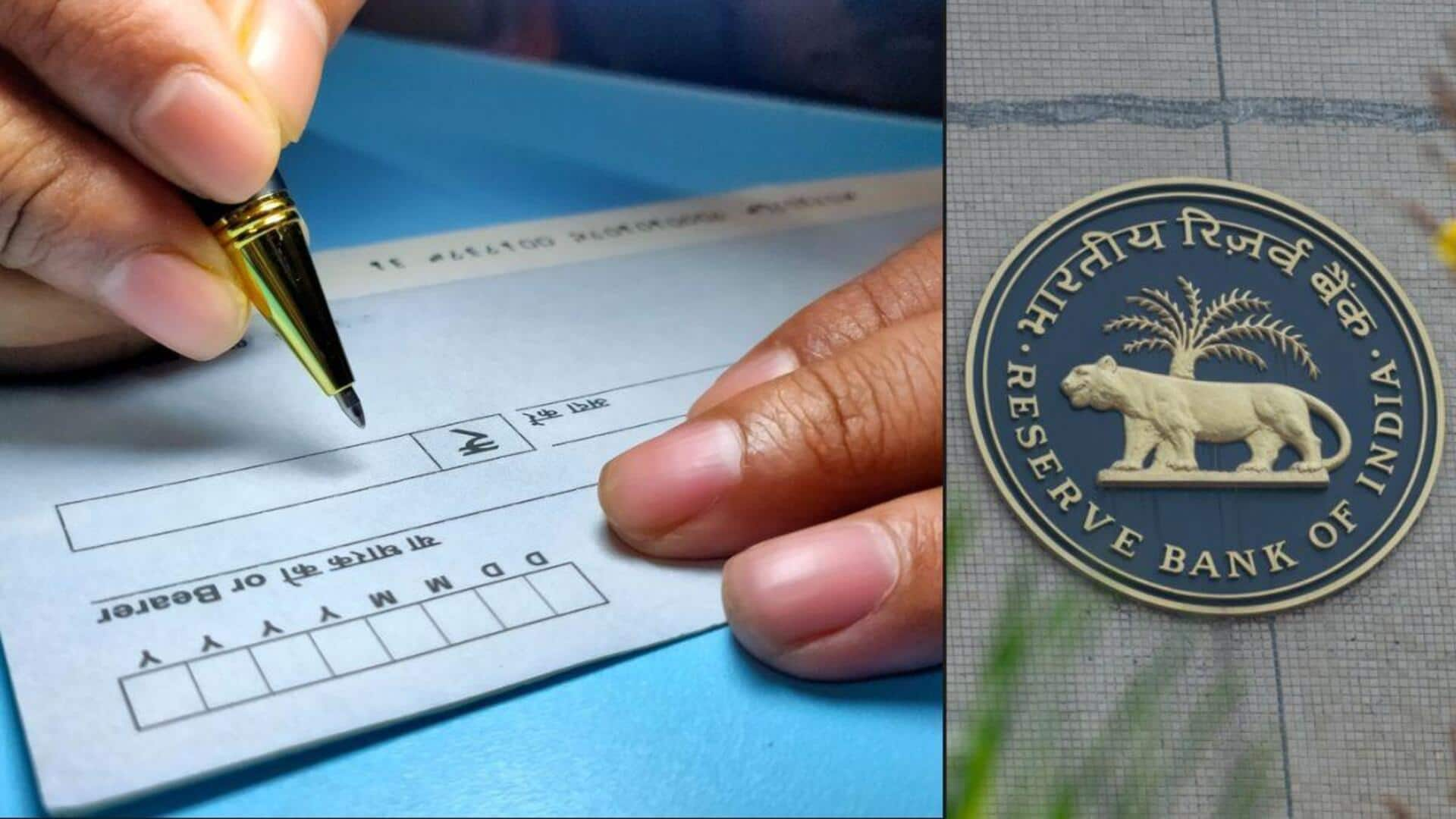
India: Cheque clearing to be done in hours starting tomorrow
What's the story
India's cheque clearing system is undergoing a major transformation, starting October 4. The Reserve Bank of India (RBI) will replace the current batch-based model with a continuous, near real-time process. This change will drastically reduce fund transfer times from days to just a few hours. Cheques deposited between 10:00am and 4:00pm will be scanned and sent for clearing instantly under the new system.
Operational details
Funds will reach accounts on same day
The new system will ensure that funds reach accounts on the same day. From 11:00am onward, settlements between banks will take place every hour. The paying bank has to confirm by 7:00pm. If it fails to respond, the cheque will be auto-approved. This is a major improvement over the current system, where funds usually take one or two business days to clear.
Customer advantages
Faster access to money, quicker payments
The revamped cheque clearing system promises faster access to money and quicker payments for businesses. It also ensures a uniform clearing speed across the country, making it easier for users to track their cheque status. The RBI's move is part of a larger effort to modernize India's banking infrastructure and improve customer service.
Historical perspective
How cheque clearing has evolved over the years
Cheque clearing in India has evolved over the years. Before the 1980s, it was a manual process that could take a week. The introduction of MICR sorting in the '80s reduced local clearing to 1-3 days. In 2008, the Cheque Truncation System (CTS) cut this time to one day. A nationwide grid introduced uniform T+1 clearing in 2021, and now, continuous clearing will start from October 4, further reducing it to hours.
Implementation strategy
New rules to apply to all bank branches
The new rules will apply to all bank branches under RBI's three grids—Delhi, Mumbai, and Chennai. The implementation will be done in two phases. In the first phase (October 4-January 2, 2026), banks have to confirm by 7:00pm. In the second phase (from January 3, 2026), banks will have just three hours to respond. This phased approach is aimed at ensuring a smooth transition to the new system.